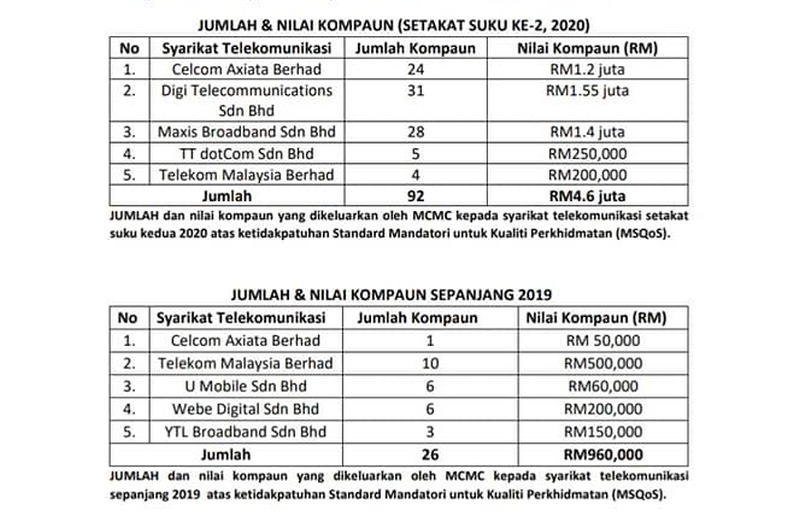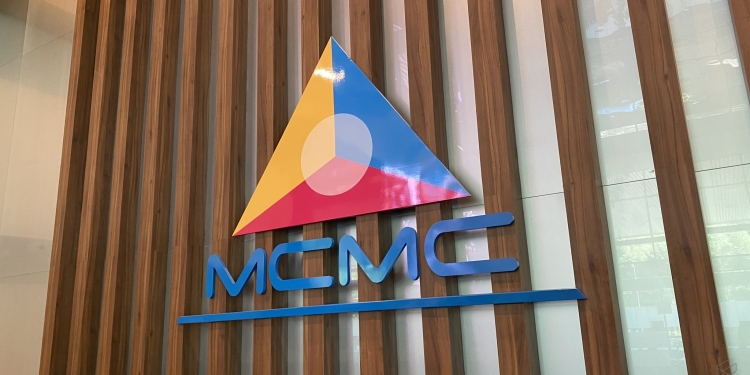The Malaysian Communications and Multimedia Commission (MCMC) has revealed that a total of 92 compounds valued at RM4.6 million have been issued to telcos up to the second quarter of 2020. That’s almost 5 times the total value of compounds issued for the entire year in 2019.
According to the MCMC, the compounds were issued in accordance to Section 105(3) with the Communications and Multimedia Act 1998 for various offences involving the resolution for billing complaints, non-billing complaints and handling of hotline calls. The total compounds issued until the second quarter far exceed the full year of 2019 which registered just 26 compounds worth a total of RM960,000.

For Q2 2020, Digi received the most at 31 compounds valued at RM1.55 million, followed by Maxis with 28 compounds valued at RM1.4 million and Celcom at 24 compounds at RM1.2 million. Meanwhile, TIME received 5 compounds valued at RM250,000 and TM received 4 compounds valued at RM200,000 million. Both U Mobile and YTL Communications were not included in the Q2 2020 list.
The MCMC added that the increase of compounds issued illustrates the commitment and firm action to ensure that consumers receive an acceptable experience and to instil trust and confidence towards the country’s communications and multimedia industry. It added that providers that fail to maintain the standards as defined by the Communications and Multimedia Act (CMA) 1998, Mandatory Standard of Quality of Service (MSQoS) and General Consumer Code (GCC) can be fined up to RM100,000 for each offence.
It is worth noting that Malaysia was placed under movement control order during Q2 2020. During the early phases of MCO, it was noted that nearly 70% of Malaysians had relied on mobile data to stay connected. To support Malaysians working from home and online learning, the local telcos had offered free 1GB of data daily. During the MCO, the internet has become a lifeline for the country and it was acknowledged that telcos have experienced network congestion due to the sheer number of users connecting at the same time. Telcos were also prohibited to provide on-site support and new installation during the period but eventually, the restrictions were lifted starting with green zone areas.
[ SOURCE ]








